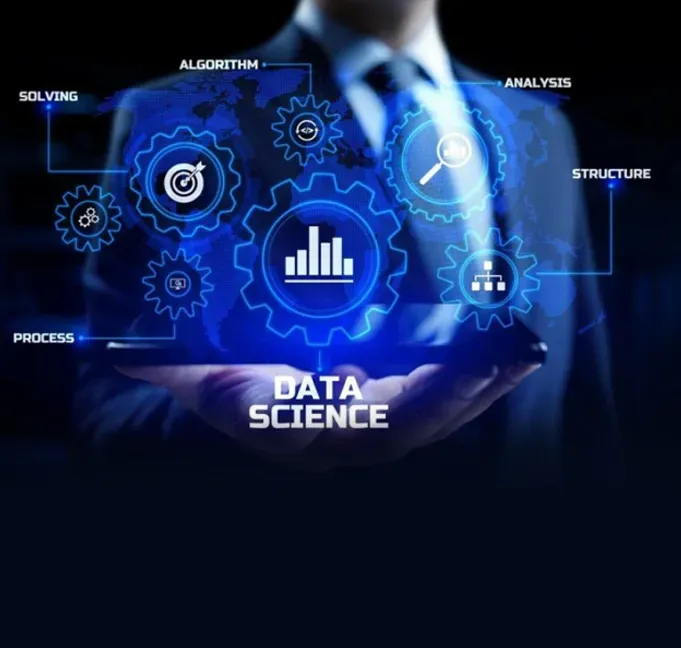Summary
(The data science life cycle outlines the key stages in transforming raw data into valuable insights. This blog explores each phase—data collection, preparation, exploration, modeling, evaluation, and deployment—explaining how data science projects evolve. Ideal for students and professionals seeking a clear understanding of real-world data workflows.)
In the era of huge databases, the importance of data science, data analysis, and their lifecycle has become crucial to gaining insights from raw data. The lifecycle of data science starting from data acquisition to data interpretation plays an impactful role in the decision-making of businesses along with enhancing operations and driving innovation. In the digital landscape of the present times, a strong base of quality data is pivotal for good analysis to ensure the competitiveness of businesses.
In this post, let us explore the data science lifecycle to unlock its potential through all the stages of acquiring data, deploying, and monitoring it.
Get Complete Details From Expert
What is the Data Science Lifecycle?

A data science or data analytics lifecycle is a series of steps taken by data scientists to use data along with other tools to solve business problems or to deliver projects. There are six crucial phases of the data science lifecycle including understanding businesses and classifying problems, collection and processing of data, data analysis, data modeling, and finally presentation and deployment of data. Each of these stages plays a significant role in converting raw data into valuable knowledge to support project implementations. Let’s take a look at the various stages of Data Science Lifecycle:
Stages of Data Science Lifecycle Project
1. Understanding Business Problems:- The lifecycle of data science starts with identifying the problem to discover answers for basic queries such as business requirements. So, this is the stage of finding objectives to finalize the goals of an analysis. This can be done by observing business trends and stating the problem clearly to find a solution.
2. Collection of Data:- Raw data collection is the next phase in the data science lifecycle. Data scientists are required to collect data from various relevant sources. The data collected can be either in structured form or unstructured. It is collected from sources like online repositories, social media, website logs, and other sources. Data Scientists, however, might find it challenging to track the source of the data, where it is coming from and if it is recent data.
3. Processing of Data:- The stage that follows next is analyzing and processing raw data and fine-tuning it for the progress of the overall project. Data scientists look into the patterns, biases, and other aspects of data to ensure the sustainability of the database. This is the most critical part of the lifecycle of data science as the effectiveness of the entire model depends on this stage.
Also read:- What It Takes to Succeed in a Data Science Career
4. Data Analysis:- This is another critical step that captures ideas about finding solutions and the factors influencing the data science lifecycle. This is a stage with no particular guidelines or methodology. The result or productivity in this stage depends on the contribution or involvement of the process. The plot and distribution pattern of the data are analyzed using spectrum analysis, histograms, and population distribution.
5. Data Modeling:- Data modeling is yet another stage of the data science process lifecycle that involves formulating the appropriate model to realize the expected performance . It is important to use analyzed data for the model in this stage as well as to find the environment required for the same. Here. teams work in collaboration to develop datasets to support the testing of the model. Choosing the appropriate mode is a crucial aspect of this stage. Once the model is analyzed, it has to be implemented carefully with the right algorithm.
6. Presentation and Deployment of Data:- The final stage in the data science lifecycle is the presentation and deployment of the model using the preferred channel. It includes executing the analyzed model in the desired format and channel. Generally, these models are combined with other products and applications to deploy. It also requires creating a delivery mechanism. Deployment of the model along with continuously monitoring and assessing its performance integrates it into production systems and ensures continued efficiency and effectiveness in varied environments of operation.
Overall, the data science lifecycle is a dynamic and iterative process that transforms raw data into actionable insights through various stages as mentioned above. Thus, the success of data science depends on understanding business goals, communicating effectively, and result based continual refinements.
Take the next step in your career ?
Conclusion
Data is pivotal for businesses as it helps in better decision-making. Every organization at all levels relies on data-driven decisions and strategies to achieve long-term goals. With seamless use of data science, business operations can be streamlined and optimized.
If you are passionate about data, pursuing data science as a career can help you make a giant leap in your career. Amity University Online’s MBA in Data Science and MSc in Data Science are some courses that allow students and working professionals to gain impetus in careers with data science courses in the fields of Data Analysis, Data Visualization, and Machine Learning.
Check Out Our Top Online Degree Programs




